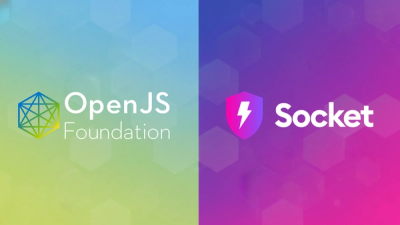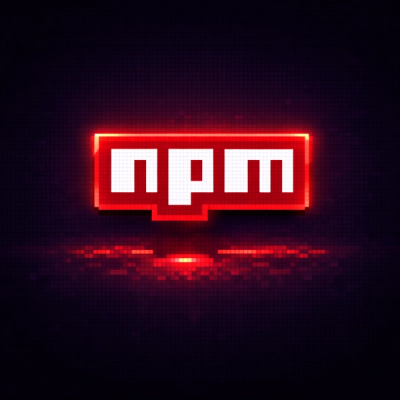
Research
SANDWORM_MODE: Shai-Hulud-Style npm Worm Hijacks CI Workflows and Poisons AI Toolchains
An emerging npm supply chain attack that infects repos, steals CI secrets, and targets developer AI toolchains for further compromise.
Encode a URL to a percent-encoded form, excluding already-encoded sequences.
npm install encodeurl
var encodeUrl = require('encodeurl')
Encode a URL to a percent-encoded form, excluding already-encoded sequences.
This function accepts a URL and encodes all the non-URL code points (as UTF-8 byte sequences). It will not encode the "%" character unless it is not part of a valid sequence (%20 will be left as-is, but %foo will be encoded as %25foo).
This encode is meant to be "safe" and does not throw errors. It will try as hard as it can to properly encode the given URL, including replacing any raw, unpaired surrogate pairs with the Unicode replacement character prior to encoding.
var encodeUrl = require('encodeurl')
var escapeHtml = require('escape-html')
http.createServer(function onRequest (req, res) {
// get encoded form of inbound url
var url = encodeUrl(req.url)
// create html message
var body = '<p>Location ' + escapeHtml(url) + ' not found</p>'
// send a 404
res.statusCode = 404
res.setHeader('Content-Type', 'text/html; charset=UTF-8')
res.setHeader('Content-Length', String(Buffer.byteLength(body, 'utf-8')))
res.end(body, 'utf-8')
})
var encodeUrl = require('encodeurl')
var escapeHtml = require('escape-html')
var url = require('url')
http.createServer(function onRequest (req, res) {
// parse inbound url
var href = url.parse(req)
// set new host for redirect
href.host = 'localhost'
href.protocol = 'https:'
href.slashes = true
// create location header
var location = encodeUrl(url.format(href))
// create html message
var body = '<p>Redirecting to new site: ' + escapeHtml(location) + '</p>'
// send a 301
res.statusCode = 301
res.setHeader('Content-Type', 'text/html; charset=UTF-8')
res.setHeader('Content-Length', String(Buffer.byteLength(body, 'utf-8')))
res.setHeader('Location', location)
res.end(body, 'utf-8')
})
This function is similar to the intrinsic function encodeURI. However, it will not encode:
\, ^, or | characters% character when it's part of a valid sequence[ and ] (for IPv6 hostnames)As a result, the encoding aligns closely with the behavior in the WHATWG URL specification. However, this package only encodes strings and does not do any URL parsing or formatting.
It is expected that any output from new URL(url) will not change when used with this package, as the output has already been encoded. Additionally, if we were to encode before new URL(url), we do not expect the before and after encoded formats to be parsed any differently.
$ npm test
$ npm run lint
The querystring package provides utilities for parsing and formatting URL query strings. It can be used to percent-encode a query string, but unlike encodeurl, it is specifically designed for handling the query string part of a URL and not the entire URL.
Similar to querystring, the qs package allows for parsing and stringifying query strings with more advanced features like nested objects. It also handles percent-encoding but is focused on the query string component rather than full URLs.
The urlencode package is another alternative for percent-encoding URLs and query strings. It offers similar functionality to encodeurl but with a slightly different API and additional options for encoding.
FAQs
Encode a URL to a percent-encoded form, excluding already-encoded sequences
The npm package encodeurl receives a total of 38,991,632 weekly downloads. As such, encodeurl popularity was classified as popular.
We found that encodeurl demonstrated a not healthy version release cadence and project activity because the last version was released a year ago. It has 2 open source maintainers collaborating on the project.
Did you know?

Socket for GitHub automatically highlights issues in each pull request and monitors the health of all your open source dependencies. Discover the contents of your packages and block harmful activity before you install or update your dependencies.

Research
An emerging npm supply chain attack that infects repos, steals CI secrets, and targets developer AI toolchains for further compromise.

Company News
Socket is proud to join the OpenJS Foundation as a Silver Member, deepening our commitment to the long-term health and security of the JavaScript ecosystem.

Security News
npm now links to Socket's security analysis on every package page. Here's what you'll find when you click through.